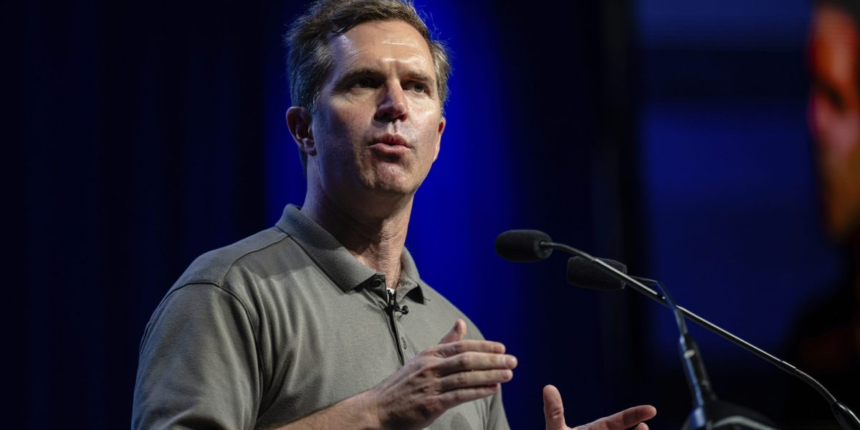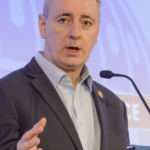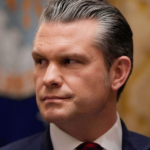SiriusXM announced that it was giving Beshear’s new podcast a national platform starting this month, along with featuring him in a regular call-in show on its Progress network.
In an interview, Beshear said a motivating factor in his own podcast was people who have come up to him, especially during the Trump administration, to talk about their anxieties.
“That’s how Americans feel,” he said. “They feel like the news hits them minute after minute after minute. And it can feel like chaos. It can feel like the world is out of control. With this podcast, we’re trying to help Americans process what we’re going through.”
He’s already done nearly two dozen podcasts, with his audience heavily weighted toward Kentucky residents. His guests have included some potential Democratic presidential rivals, including Maryland Gov. Wes Moore and Minnesota Sen. Amy Klobuchar. Entrepreneur Mark Cuban, former Kentucky basketball coach John Calipari and Kentucky-born actor and comic Steve Zahn have also appeared.
Beshear, the son of a former governor who’s been leading Kentucky since 2019, talks issues himself. Two of his friends, a Republican and a Democrat, are regular guests, and his 16-year-old son helps Dad navigate some youthful lingo.
“I did disagree with him on certain guests because I don’t like to give oxygen to hate,” Beshear said. “But Gavin is out there really working to communicate with the American people, and he deserves to be commended for it.”
Newsom’s podcast started slowly in the marketplace but has caught fire in recent weeks, his regular audiences jumping from the tens of thousands to the hundreds of thousands, said Paul Riismandel, president of Signal Hill Insights, an audio-focused market research company.
Whether ambitious politicians start their own podcasts or not, they’re going to have to be familiar going forward with what makes people successful in the format.
“With a podcast, the audience expects a more unfiltered, authentic kind of conversation and presentation,” Riismandel said. If politicians come across as too controlled, looking for the sort of soundbites that will be broken out in a television appearance, it’s not likely to work, he said. They have to be willing to open up.
“That is something that is probably new for a lot of politicians,” he said, “and new for their handlers.”
Beshear’s first podcast for SiriusXM will feature an interview with House Minority Leader Hakeem Jeffries, D-N.Y., conducted in the company’s New York studio and debuting Sept. 10. The Progress network will air Beshear’s podcasts regularly on Saturdays at 11 a.m. Eastern.
The first live call-in show will be next Tuesday at noon, with Beshear joined by Progress host John Fugelsang.
Beshear stressed that his work for SiriusXM is “not just aimed at a Democratic audience.”
“We’re aiming,” he said, “at an American audience.”









